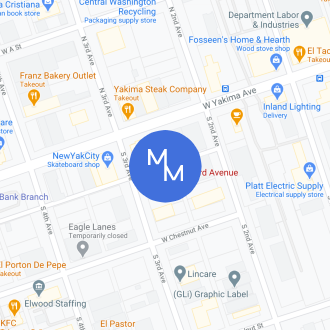It is not uncommon for families and individuals to find themselves with an unmanageable amount of debt and very few ways to alleviate the strain it puts on their finances, especially in today’s economy. Many people may not have considered, however, that one of their most useful tools for escaping a cycle of increasing debt and frustration is filing for bankruptcy.
Bankruptcy can be a Good Thing
Bankruptcy is, unfortunately, seen by some in a negative light and some may even view it as admitting to some kind of failure. This unfortunate characterization hides the fact that bankruptcy can provide people with a structured, legally enforced method of actually regaining control of their finances and paying off creditors. While filing will appear on later credit reports, it is frequently a better option than continuing to stay in debt allowing your credit history to become devastated.
Consumers have Two Options
In the event that a consumer may need to file for bankruptcy, they have two different options: Chapter 7 and Chapter 13 of the United States Bankruptcy Code. These two bankruptcy options differ with regards to how they handle debt. In Chapter 7 bankruptcy, many, and sometimes most, of an individual’s debts are eliminated altogether. In rare instances, an individual may have to sell some non-exempt items in order to help cover the costs of their debts. Chapter 13, on the other hand, creates a financial repayment plan that may last for three to five years and allows an individual to pay off their debt in smaller, routine payments.
Benefits and Disadvantages
Chapter 7 bankruptcy works very quickly, but occasionally requires an individual to liquidate some assets. Large amounts of debt and aggressive creditors may spur someone to choose this method, as it will eliminate all or the majority of someone’s debt. Chapter 13 will allow someone to hang on to their assets, but that person will have to stick to a repayment plan and must live with their slowly decreasing debt for several years. The right type of bankruptcy for you will depend greatly on your current financial situation, the amount of debt you have, and your income.
Taking Action
It does not help to hesitate unnecessarily when considering filing for bankruptcy if you have unmanageable debt. Waiting to do so may only prolong the time it will take to re-establish some measure of financial control over your money and could increase the time it takes to pay off your debts. Recognizing that you may need outside help as soon as possible and filing for bankruptcy will actually help you get through the struggle of managing debt to a more secure place sooner than waiting ever would.
About the Author
Carlos is an avid and full-time blogger who writes on a variety of different subjects. He is interested in sharing information about how a bankruptcy lawyer can help you through difficult financial situations.


